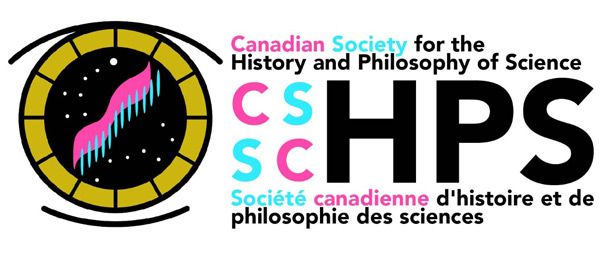Conference: “Sustainability and the Arts in a Technological Society: Revisiting Jacques Ellul”
July 8-9, 2022
Montreal, Canada
Conference Website
Best known as the author of The Technological Society (1954, English trans. 1964), Jacques Ellul (1912-94) wrote over sixty books and hundreds of articles, among them a sustained reflection on the arts, The Empire of Non-Sense: Art in the Technological Society (1980, English trans. 2014). Throughout his oeuvre, Ellul advances a radical notion of freedom and and ethics of non-power, making space for revolutionary projects and a refusal of the dominant order. For Ellul, the greatest threat to freedom is the increasing demand for efficiency, productivity, rationalization, standardization, and automation in industrialized cultures—a sociological reality he calls ‘Technique’. Witness to rapid technological intensification in the twentieth century and the atrocities of two world wars, Ellul offers not so much solutions as diagnoses of the accumulating environmental, economic, and humanitarian disasters that have resulted from an exaltation of the values of Technique. This conference addresses the question of sustainability in relation to artistic practices and industries, using Ellul’s critiques as a starting point.
In The Empire of Non-Sense, Ellul turns his attention to the entanglement of Technique and modern art. He analyses a range of artistic movements, including Pop Art, Art Brut, abstract expressionism, and Happenings, taking up critiques offered by Bernard Charbonneau, Theodor Adorno, Pierre Daix, Guy Debord, and Abraham Moles, among others. Ellul claims that the most dramatic transformation has been the incapacity for modern artworks to symbolize beyond themselves, beyond the values of Technique. In a technological society, writes Ellul, symbols become clichés or mere images, signaling a loss of place and meaning; they become technical phenomena or embodied theory. Ultimately, Ellul worries that the arts are incapable of confronting the hegemony of Technique; that, for the most part, they tend to reproduce dominant ideologies rather than create spaces for opposition.
Ellul was also an ecological thinker, and together with Charbonneau they advanced ideas that continue to inform discourses in modern environmental and décroissance movements. For most of his life, Ellul remained in his native Bordeaux where he was as committed to grassroots activism as he was to his scholarly career, taking part in organized actions against environmental destruction in the Aquitaine region. After serving on the municipal council in Bordeaux and seeing firsthand the limitations of State politics (which, to Ellul, are incapable of escaping the logic of Technique), Ellul’s commitment to direct political action through small, autonomous groups deepened.
We invite papers and presentations from scholars, artists, activists, curators, and critics, that consider the intersection of sustainability and the arts through an engagement with Ellul’s work. Ellul’s perspective on the arts has rarely been considered, therefore this conference is an opportunity to bring forward these critiques in relation to his theories on the increasing demand for productivity, efficiency, rationalization, and standardization in nearly all aspects of everyday life. What is the role of the arts in a technological society? What strategies do artistic practices offer in refusing the dominant order and logic of Technique? What aspects of the arts and culture industries are sustainable or unsustainable if we are to take seriously measures to prevent climate change and environmental degradation?
Topics may include, but are not limited to the following:
· the significance of early culture industry critiques from the Bordeaux and the Frankfurt Schools
· Ellul’s concern about the symbol in the arts
· sustainable and unsustainable practices in the arts and culture industries
· Ellul, Debord and the Situationist critique of spectacle
· the role of the arts in imagining sustainable futures
· examination of individual artists in relation to the Ellulian challenge
· transgressive and revolutionary potential of the arts and artistic practice
· queer and feminist artistic practices and contributions
· degrowth in the culture industries and the potential for alternative economies
· collective action through the arts, artist collectives, and anarchist formations
· the revolutionary potential of the historic avant-garde, or lack thereof
· Charbonneau’s notion of false “creative” compensations for the dominance of science and economics
· media ecology perspectives on the arts and environment
· critical perspectives on Ellul’s work related to the arts and ecology, including but not limited to the The Empire of Non-Sense (1980) and Humiliation of the Word (1981).
· Ellul’s poetry
Call for Papers Montreal Ellul Conference 2022
We invite prospective participants to submit a proposed title, 250-word abstract, 100-word bio, and any technical equipment or support requirements in a single Word or PDF document to ellul.conference@gmail.com. Papers may be given in English or French. Proposals for full panels (comprising 3-4 papers) are also welcome and should include a 300-word rationale for the panel in addition to abstracts for each individual paper.
We particularly invite submissions from artists and members of marginalized communities. These can have more of a presentation style rather than being a formal paper.
Submission deadline: Wednesday, December 1, 2021
Acceptance notices will be sent in early January 2022
International Jacques Ellul Society website: ellul.org; abstracts may also be submitted via the conference page on the website: click to it from the brief conference description on the main page.
Paper submission deadline for online posting: May 1, 2022
Conference dates: July 8 – 9, 2022
Conference location: McGill University, Montreal, Canada
For membership inquiries, contact:
name
Dr. Andrew Inkpen
CSHPS Secretary-Treasurer
Address
Department of Philosophy
Mount Alison University
Phone
(902) 809-3739
©2000-2024 CSHPS/SCHPS
contact web manager
